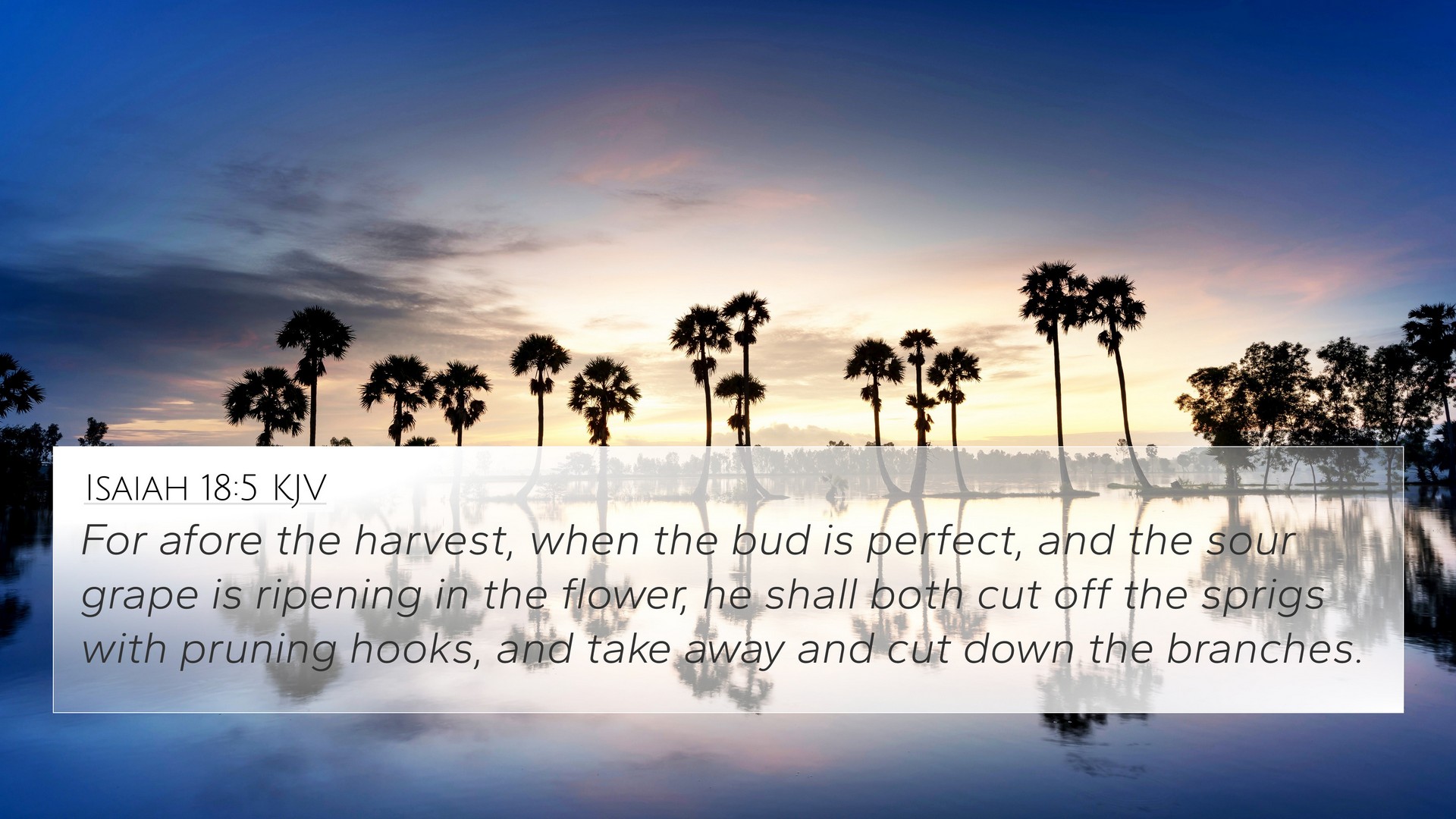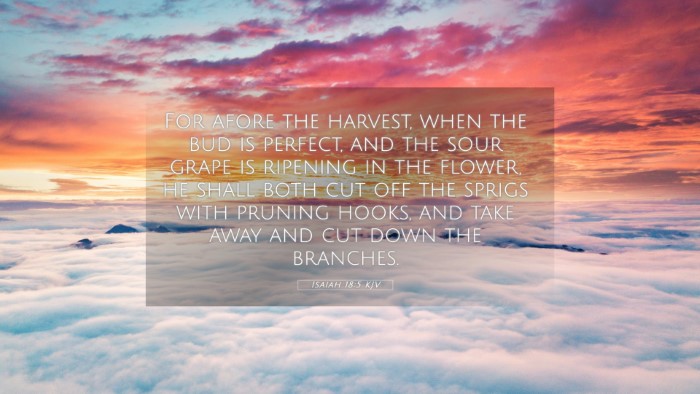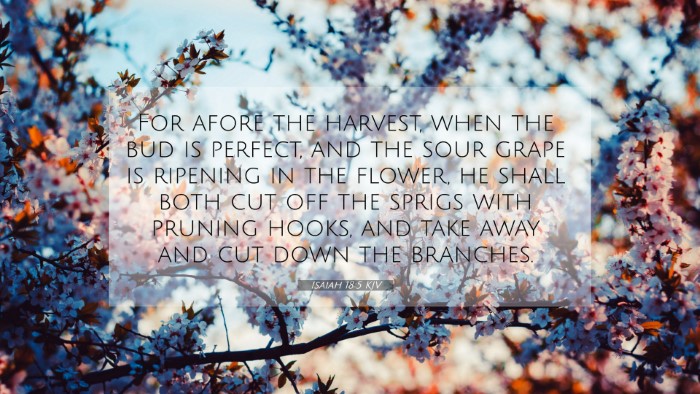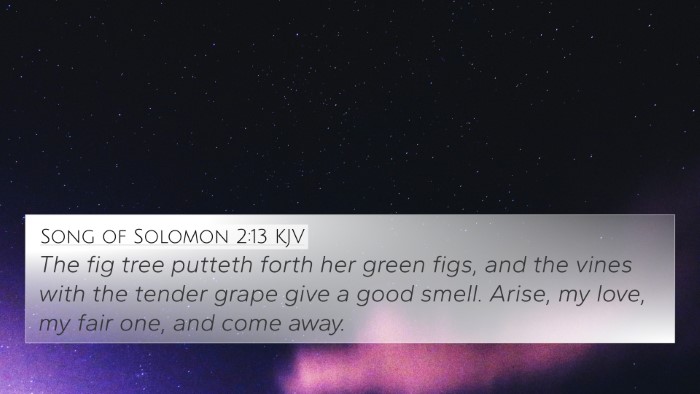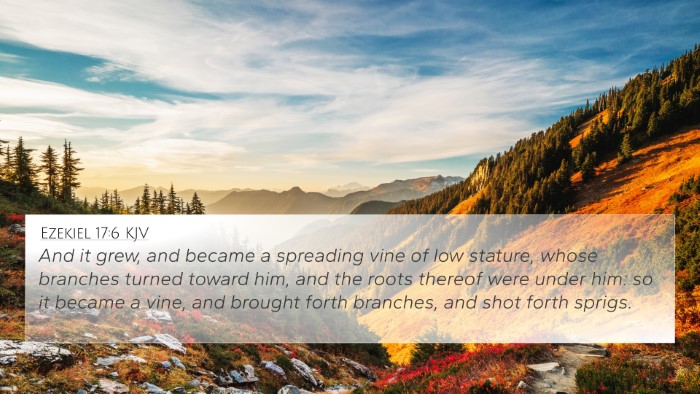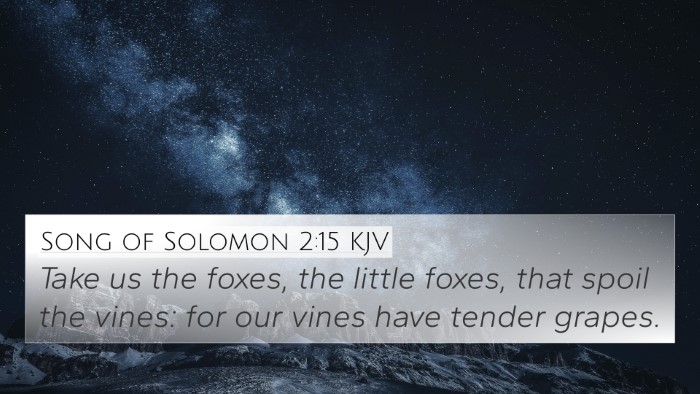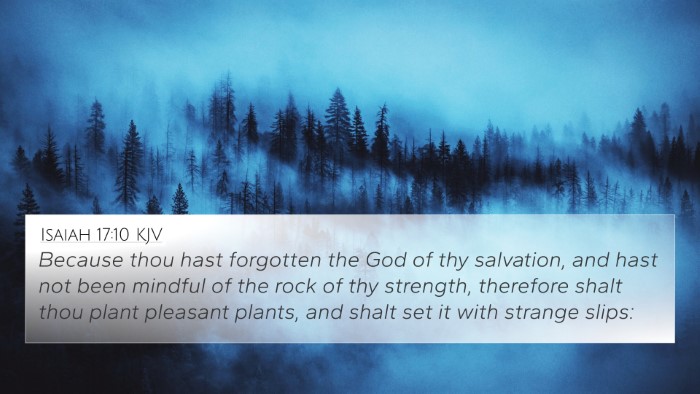Understanding Isaiah 18:5
Isaiah 18:5 is a verse that speaks about the timing and the criticality of God’s judgment upon nations. This verse can be examined in light of various public domain commentaries to gain a comprehensive understanding of its implications and theological significance.
Verse Context and Meaning
In Isaiah 18:5, the message is directed toward a nation described as having a distinctive characteristic in its growth and development. The verse states:
"For before the harvest, when the bud is perfect, and the sour grape is ripening in the flower, he shall both cut off the sprigs with pruning hooks, and take away and cut down the branches." (Isaiah 18:5, KJV)
This verse illustrates a time of critical judgment and indicates that God sees the coming maturity of evil, which will be met with divine action.
Commentary Insights
- Matthew Henry: Henry points out that this verse symbolizes God's sovereign control over nations and the inevitability of His judgment, which comes at the right time. He emphasizes the importance of recognizing God's timing in the harvest of nations.
- Albert Barnes: Barnes elaborates on the metaphorical language used in this verse. He notes that the 'harvest' represents a culmination of growth — both good and bad. Barnes explains that God's pruning signifies the removal of what is undesirable and unfruitful.
- Adam Clarke: Clarke focuses on the allegorical interpretation, suggesting that the 'sour grape' alludes to a people whose characteristics are not pleasing to God. He asserts that the verse serves as a warning regarding the consequences of a nation’s disobedience and moral decay.
Thematic Connections
The themes encapsulated in Isaiah 18:5 resonate with several key motifs throughout the Bible, especially concerning judgment and divine intervention. Below are some related themes and cross-references that bolster the understanding of this verse:
- Jeremiah 5:24: Highlights the principle that nations often forget to acknowledge God's providence.
- Matthew 3:10: Discusses the necessity of bearing good fruit or facing judgment.
- John 15:2: Emphasizes God's role in pruning and refining His people for greater fruitfulness.
- Revelation 14:15: Illustrates the final harvest of humanity, reflecting themes of judgment.
- Lamentations 3:34-36: Discusses God's righteous judgments and the accountability of nations.
- Micah 7:1: Reflects the sorrow of recognizing unfruitfulness and the consequences that follow.
- Isaiah 26:9: Points to the longing for God's judgment as a means of establishing righteousness.
Inter-Biblical Dialogues
This verse serves as a point of connection between various Scriptures discussing God’s sovereignty and judgment:
- Connections to the New Testament: The principles presented in Isaiah 18:5 can be observed in parables like the Wheat and the Tares (Matthew 13:24-30), which also discuss divine separation and judgment.
- Old Testament Precedents: The pruning metaphor can be linked back to Genesis 6:5-7, where God decided to cleanse the earth due to human wickedness.
Tools for Study and Cross-Referencing
To understand Isaiah 18:5 more profoundly, utilizing tools such as a Bible concordance or a Bible cross-reference guide can be beneficial. These resources allow for effective cross-referencing Bible studies, providing insight into similar biblical themes and verses.
Conclusion
Isaiah 18:5 serves as a rich source for theological reflection regarding divine judgment and the cultivation of nations. By employing tools for Bible cross-referencing, readers can draw connections between verses, leading to a fuller understanding of God's interaction with humanity. This verse, like many others, reveals the nature of God's justice and mercy through striking imagery of harvest and pruning.
